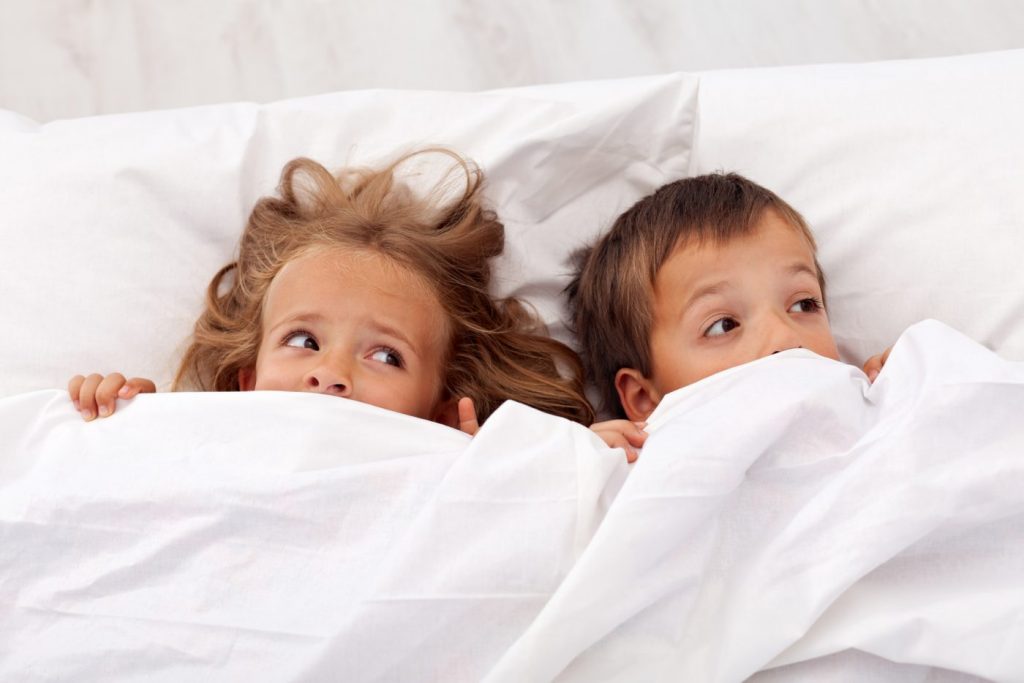Sleep deprivation has a number of negative outcomes for children, including irritability, anxiety and ultimately poor performance at school. It is thought that children aged up to five years old may be losing as much as two hours sleep per week and children aged up to ten years could be losing up to four hours per week.

Teach Your Child To Sleep, Millpond / Hamlyn, Revised 2016.
Sleep Faring, Jim Horne / Oxford, 2006.
Take Charge of Your Child’s Sleep, Judy Owens and Jodi Mindell / Marlowe and Co, 2005.
Healthy Sleep Habits, Happy Children, Dr Marc Weissbluth / Vermilion, 2010.
Sleeping Better, A Guide to Improving Sleep for Children with Special Needs V Mark Durand / Brookes Revised Edition 2014.
Outcomes at six years of age for children with infant sleep problems: Longitudinal community-based study Anna M.H. Price, Melissa Wake, Harriet Hiscock et al, Sleep Medicine 13 (2012) 991–998.
Short Nighttime Sleep Duration and Hyperactivity Trajectories in Early Childhood,Tourchette et al. Pediatrics.2009.
Sleep and Depression in Postpartum Women: A Population-Based Study; Dorheim SK et al, Sleep 2009; 32(7): 847-855.
Fragmented maternal sleep is more strongly correlated with depressive symptoms than infant temperament at three months postpartum. Goyal D, Gay C, Lee K, authors Arch Women’s Ment Health. 2009;12:229–37.
Sleep problems in young infants and maternal mental and physical health, Jordana K Bayer, Harriet Hiscock, Anne Hampton and Melissa Wake, Journal of Paediatrics and Child Health, vol 43, issue 1-2, January/February 2007.
Longitudinal analysis of sleep in relation to BMI and body fat in children: the FLAME study. BMJ 2011.
Short sleep duration is associated with increased markers in European adolescents.
International journal of Obesity (2011) 35, 1308-1317 M Garaulet et al.
Sleep and the epidemic of obesity in children and adults; E Van Cauter & K Knutson, 2008.
The use of Melatonin in children with Neurodevelopmental Disorders and impaired Sleep: a randomised, double-blind, placebo-controlled, parallel study (MENDS),Re Appleton, AP Jones, C Gamble, PR Williamson, L Wiggs, P Montgomery, A Sutcliffe, C Barker and P Gringras. Health Technology Assessment 2012; Vol. 16: No. 40 DOI: 10.3310/hta16400
Kids’ behavior impacted by lack of sleep, Jase Donaldson, Insight Journal, Feb 13 2006.
What affects the age of first sleeping through the night? S M Adams, D R Jones, A Esmail and E A Mitchell, Journal of Paediatrics and Child Health, vol 40, issue 3, March 2004.
Behavioral Treatment of Bedtime Problems and Night Wakings in Infants and Young Children; An American Academy of Sleep Medicine Review, Jodi A. Mindell, et al SLEEP, Vol. 29, No. 10, 2006.
References are reviewed on a regular basis and are updated when applicable.